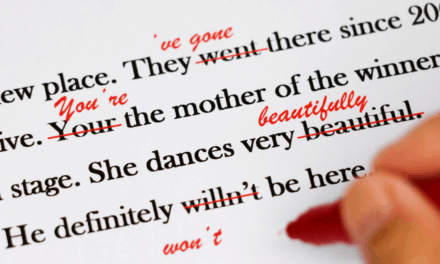Freelancing is a growing trend: for writers, PROOFREADERS, LIFE COACHES, and PHOTOGRAPHERS alike.
Let’s talk more about freelance proofreading, including what it really is, how you can market yourself, and ways to find steady work.
What is freelance proofreading?
Freelance proofreading is an independent profession like any other freelance role. Freelance proofreaders go through the written copy and make edits or suggestions that are compatible with the publication type.
For example, someone freelance proofreading for a newspaper would make sure the articles are written according to AP style, or other journalistic standards. While someone proofreading a college admissions essay would make sure the essay was formatted correctly and had a proper essay structure.
The industry you’re proofreading for has a big impact on what your day-to-day will look like.
Market yourself as a freelance proofreader
The first step in becoming a freelance proofreader is ensuring you have your resume in order. Whether you’ve helped edit high school essays through a volunteer program, or you’re an English major who has recently graduated, you’ll need a resume that shows you’re adept with the written word.
One of the best ways to do this is to have samples of your own to show prospective clients. Consider creating a portfolio (just like a photographer) that offers up examples of your writing. Clean and crisp writing with few to no grammar errors is a great way to show people you know what you’re doing.
freelance proofreading jobs
Freelance employees typically don’t receive benefits, which actually makes it cheaper for companies to hire you than to hire full-time employees. You may want to reach out to companies in your local area or your field and see if they’d be willing to work something out. You want to make sure that people come back to you over and over again. If a company is hiring a proofreader once, it’s very likely they have content that needs to be looked over year round.
In order to be sure you continue to get hired by repeating clients, consider the following freelancer best practices:
- Always complete work by predetermined, agreed-upon deadlines.
- Be in communication with your clients if circumstances affect your quality work or your ability to complete that work on time (i.e. a family emergency or equipment failure).
- Look over any freelance contracts before signing to ensure there are no surprises or misunderstandings.
- Invoice clients for agreed-upon rates and let them know in advance should circumstances dictate a change (for example, if a client is paying you one flat rate for the project, but the project turned out to be much more demanding than you anticipated, reach out to your client to communicate that).
- Remain professional in communications and refrain from contacting clients on personal numbers or emails during the evenings or weekends (for example, sending an email to their work address would be okay, but sending a text to their mobile number would not).
The proof is in the pudding
Freelance proofreaders are a necessity in so many industries. There are many companies out there who can’t fit it into their budget to hire a full-time editor but definitely need that additional pair of trained eyes looking over brochures, pamphlets, essays, presentations, and more.
Source: G2. Reproduced for educational purposes.










